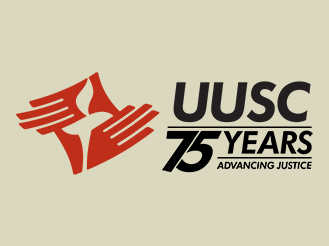The Unitarian Universalist Service Committee advances human rights through grassroots collaborations.
February 12, 2016, Rights Reading

February 12, 2016
Children and workers in danger
Our weekly roundup of what we’re reading: a few select articles from the front lines of human rights that we don’t want you to miss.
1. “Lessons from Flint’s Water Crisis,” by Sharmila L. Murthy, WBUR Cognoscenti
“Municipal water service is so essential for public health — and for life itself — that it should not be treated as merely another budget line-item. . . . We need to create a financial safety net so that municipalities faced with slash-and-burn budgeting are not forced to compromise the health and welfare of their citizens. We must draw a line in the proverbial sand and not cross it.”
This opinion piece highlights the damage done — to communities, to families, to children — when money is prioritized over human rights. As people throughout the country and the world take a closer look at what is happening in Flint, many are beginning to learn that this is not an isolated occurrence, another vital point made by the author and also shared by Patricia Jones, UUSC’s senior program leader for the human right to water. UUSC has been working with grassroots organizations in Flint and throughout Michigan to address the gross violations of the human right to water that too many communities are dealing with.
2. “Texas Officials Want Controversial Family Detention Centers To Be Labeled As ‘Child Care’ Centers,” by Esther Yu-Hsi Lee, ThinkProgress
“Calling them ‘child-care facilities’ makes people forget the main thing about detention: you’re not allowed to leave. . . . No matter how rosy a picture the government may paint of these facilities, restraining children in a place that they’re not allowed to leave can cause them ‘long-lasting psychological, developmental, and physical harm.’ That doesn’t sound like ‘child care’ to me.”
—Nicholas Marritz, a pro bono attorney with Legal Aid Justice Center
The latest on Texas efforts to reclassify family detention centers as “child care” facilities (um, no, they’re not). As the article details, much to the dismay of advocates for children’s and immigrants’ rights, Texas is putting this up for consideration with the state’s Health and Human Services Commission. What we know — from our work with RAICES, our partner in Texas, and the findings of No Safe Haven Here, our report on the conditions that mothers and children face in immigration detention — is that these facilities are unhealthy and traumatizing to families who have already been traumatized. To designate them as “child care” facilities is dangerously ridiculous.
3. “Meet the minors risking their lives to come to America — alone,” by ThinkProgress Video
“I see myself having a great future here. I want to study and I want to be a doctor when I grow up.”
—Joel
When you read the news about refugees from Central America seeking safety in the United States — many of them minors, on their own — you see a lot of numbers and hear a lot of political grandstanding. Some might forget that we’re talking about people. Individuals with hopes and dreams — and more fears than anyone should have to shoulder. This video from ThinkProgress brings it back to that fundamental, and moving, truth.
4. “Wage Theft, Sexual Assault, And No Sick Leave: The Horrible Conditions Facing Poultry Workers,” by Esther Yu-Hsi Lee, ThinkProgress
“It’s not an issue of simple disagreement over a particular wage. . . . This is about dignity and justice for the workers. It’ll take quite systemic change for these things to be in line for full rights and dignity for workers.”
—Amber Moulton, UUSC Researcher
What can we say, ThinkProgress and Esther Yu-Hsi Lee are rocking it this week! It’s awesome to see them focus on the conditions facing poultry workers in Arkansas after our partner the Northwest Arkansas Workers’ Justice Center released an eye-opening report last week.

